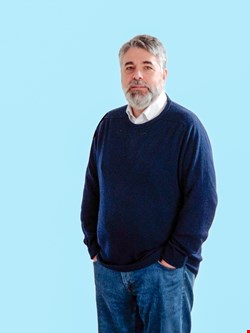Professor Alan Woodward is a well-respected information security veteran who has earned all of his industry stripes several times over. An academic, an entrepreneur, a public servant, a researcher, a consultant – he’s done it all and has done it very well. Today he researches and advises on cybersecurity with a sideline in quantum technologies...
What is it about academia that attracted you (and keeps you)?
When I was doing postgraduate research I loved the sense of community and the discussions/exchange of ideas that occurred. Today, I’m not a full-time academic, more a ‘professor in practice’. I get the best of both worlds by seeing technical cutting-edge research, but also still engaging in solving really knotty problems affecting organizations on a daily basis.
What’s the worst thing about your job?
Writing papers. I find the lifecycle for academic papers quite frustrating as our field moves so quickly. Peer review is vital for validating fundamental research but sometimes you need to engage via other channels to communicate ideas in a timely fashion. That’s why I first engaged via social media and news outlets: you can reach many people quickly with information they need to know.

Who would your ‘all-star’ project team be?
My first port of call today would include Scott Helme, Troy Hunt, Ken Munro, Dr Shujun Li, Prof Tony Ho, Prof Steve Schneider (and others from the Surrey Centre for Cyber Security) and Prof Bill Buchanan (and others from The Cyber Academy).
What would be your dream job?
A pilot, but not just flying from A to B; flying that is challenging and really requires you to fly the aircraft hands on.
What’s your proudest achievement?
My children. My professional achievements pale in comparison.
What has been your favorite job/role ever?
My research during my postgraduate phase, I learned the most the fastest during that period.
I find the lifecycle for academic papers quite frustrating as our field moves so quickly. Peer review is vital for validating fundamental research but sometimes you need to engage via other channels to communicate ideas in a timely fashion
If you could change one thing about the sector, what would it be?
A greater willingness to foster the abilities of others and actively bring on the next generation.
What’s your guilty pleasure?
Doritos with sour cream and chive dip.
What advice would you give to someone starting out in the infosec industry in 2018?
Remember that it is a multidisciplinary discipline, and increasingly no one person can do everything. Consequently, soft skills are vital as you’ll have to work well in a team and learn all sorts of things from others for the remainder of your career.
Tell us about a time you screwed up
Just the one? Probably the biggest screw up was being convinced that I’d found the solution to an operational problem that affected a lot of people, used all my advocacy skills to convince the organization to adopt the solution, only to realize that I hadn’t solved the problem at all. I spent too much time and effort convincing others that I was correct rather than proving to myself that I’d really found the answer. It was a lesson in why hubris is dangerous.
BIO @ProfWoodward
Alan began his career with the government before working for various public and private sector clients. Alan then joined colleagues to form and grow a business to focus on securing large systems, which they floated in 2000. He now splits his time between private consulting, advising government organizations, and research.
